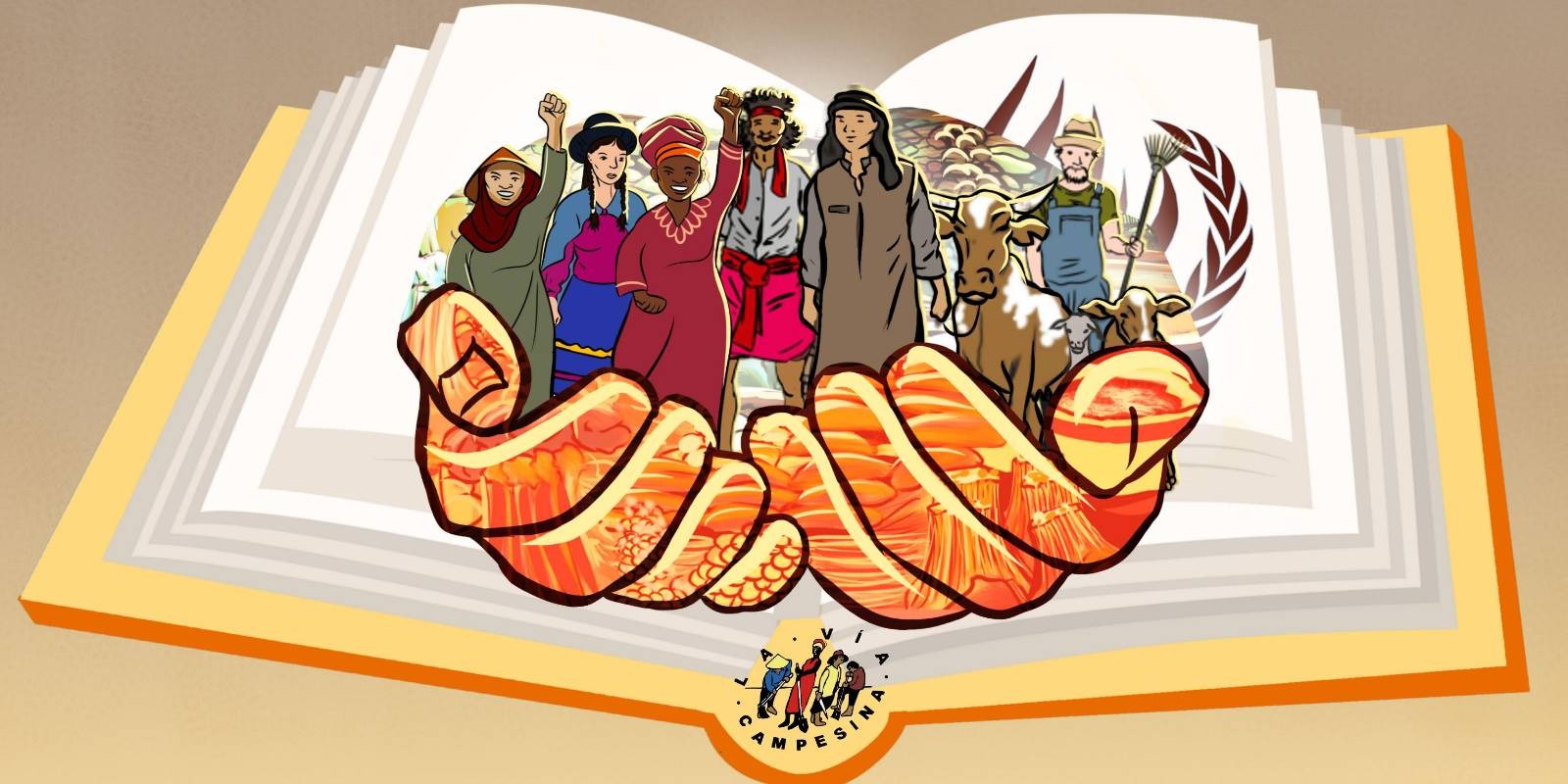The United Nations Declaration on the Rights of Peasants and Other People Working in Rural Areas, also known as UNDROP, is a UN declaration on human rights that internationally recognizes peasants’ rights as political subjects, peasants’ struggles, as well as their special relationship with Mother Earth.
It was approved by the UN General Assembly in December 2018, following 17 years of mobilization and negotiations led by La Via Campesina, the world’s largest movement of peasant food producers, and its allies. UNDROP is historic because, for the first time, the realities and needs of peasants and rural communities are addressed through human rights and states’ obligations.
The film, released by La Via Campesina as part of its formation processes, explores the main ideas of UNDROP. It explains how peasants can use this Declaration in their struggles for food sovereignty, agroecology, climate justice, agrarian reform and human rights.
Even though a declaration is not legally binding to states, its content often reflects legally binding international human rights obligations. It underlines the international community’s commitment to protect, fulfil, and respect peasants’ human rights, namely the right to:
- effective and non-discriminatory access to justice
- Land, seeds, biodiversity, water and other natural resources
- Seek, receive, develop and impart information about the processing, marketing and distribution of their products
- Food and the right to be free from hunger
- Food sovereignty and the collective right to a healthy environment
- Social security, and the right to health, housing and education
- Enjoy the culture and pursue culture development freely
- and the rights of peasant women and other women working in rural areas
Access UNDROP’s illustrated booklets on La Via Campesina’s website for more information. These booklets break down the UNDROP into four themes and explore in depth how it can protect our community.
Let’s Globalize the struggle and Globalize hope!

